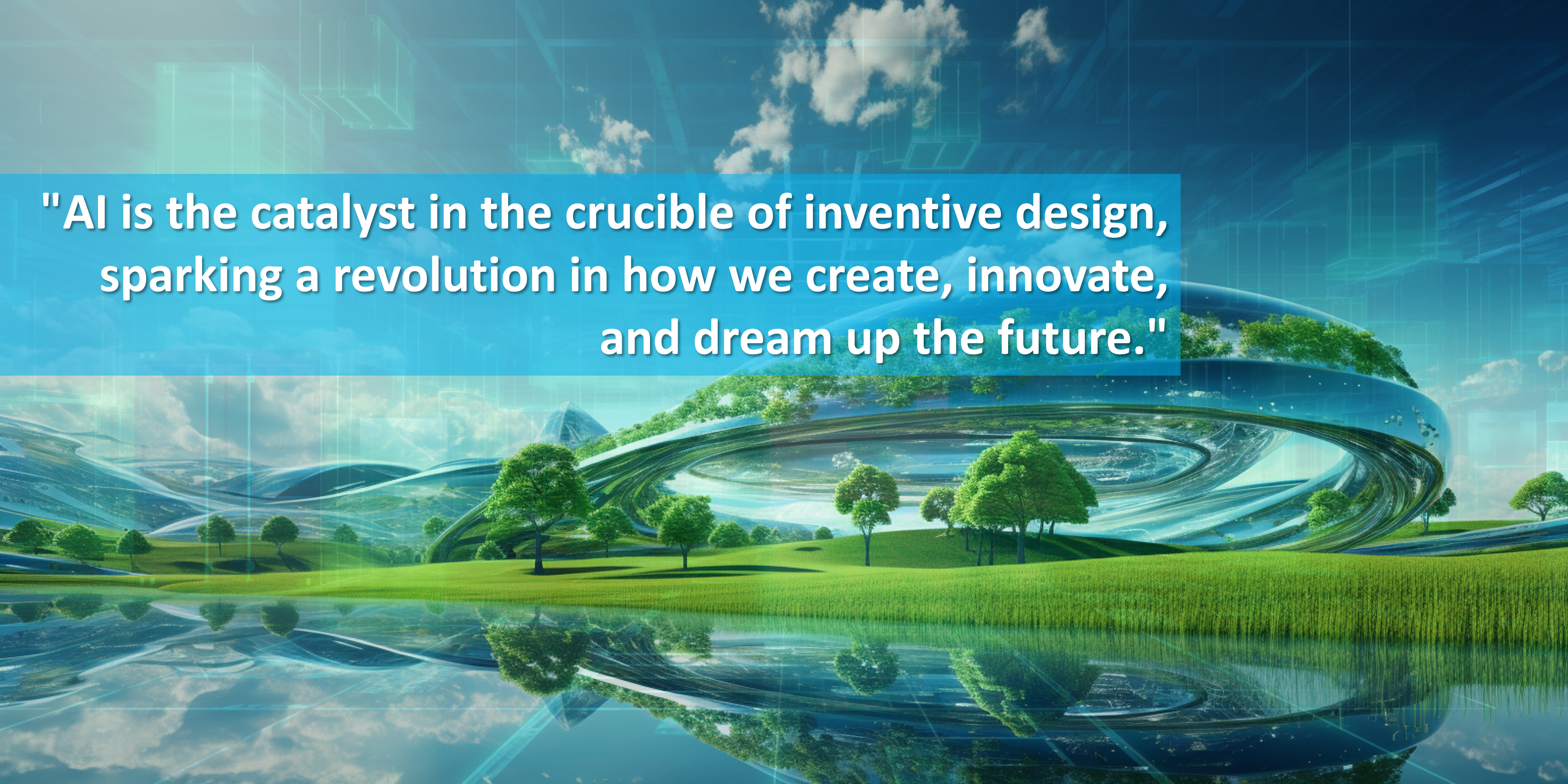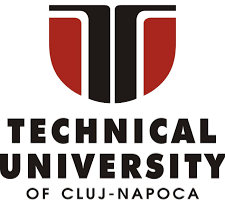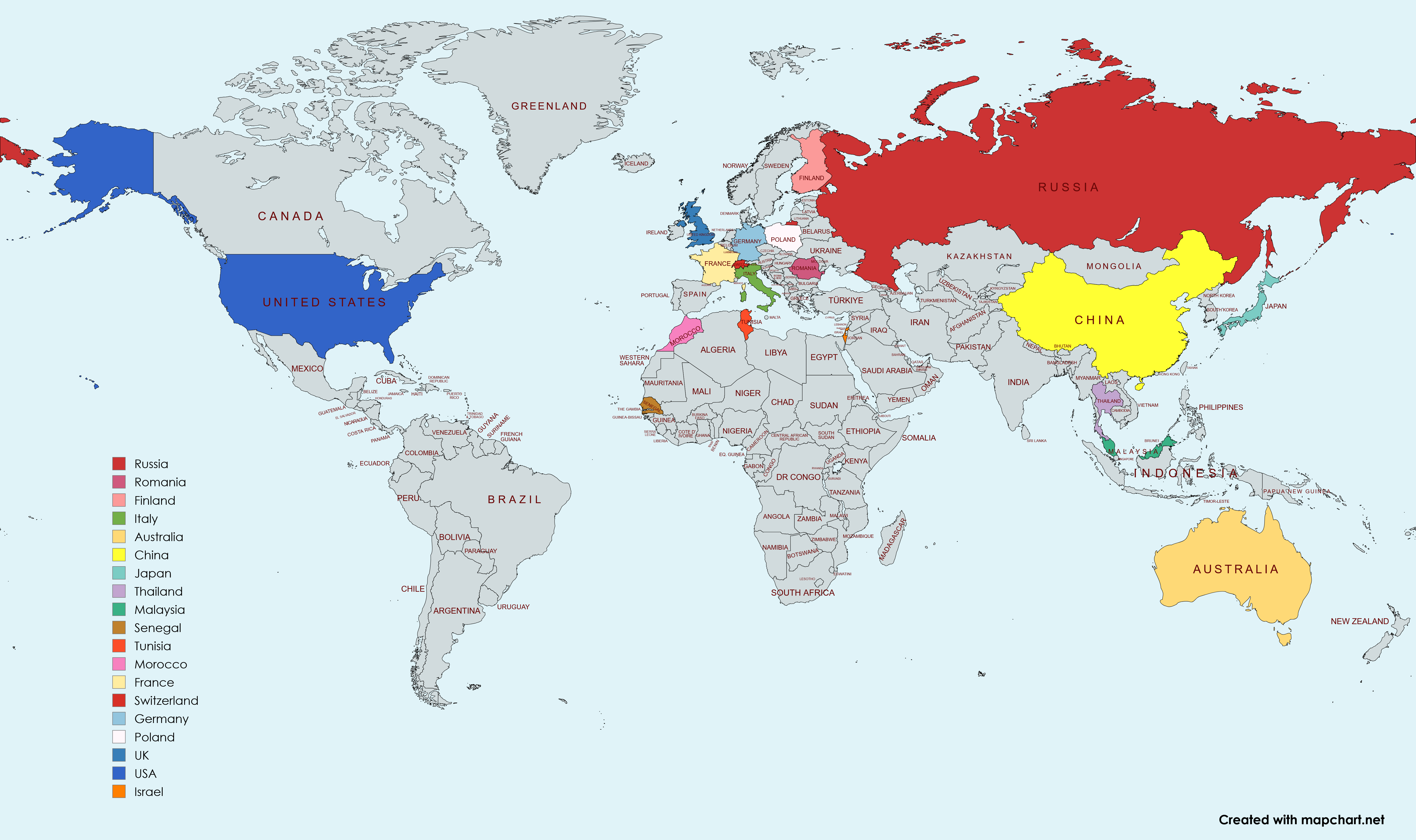
Download the conference program: HERE
Our esteemed contributors come from a diverse array of countries, including:
🇦🇺 Australia | 🇨🇳 China | 🇫🇮 Finland | 🇫🇷 France | 🇩🇪 Germany | 🇮🇱 Israel | 🇮🇹 Italy | 🇯🇵 Japan | 🇲🇾 Malaysia | 🇲🇦 Morocco | 🇵🇱 Poland | 🇷🇴 Romania | 🇷🇺 Russia | 🇸🇳 Senegal | 🇨🇭 Switzerland | 🇹🇭 Thailand | 🇹🇳 Tunisia | 🇬🇧 United Kingdom | 🇺🇸 United States.
This global representation reflects the truly international nature of our event, where cutting-edge research and innovative ideas will be shared, discussed, and explored.
This collaboration across borders exemplifies how science serves as a universal language that fosters peace and unity, transcending cultural and national differences.
Welcome to the World Conference of AI-Powered Innovation and Inventive Design!
Organized by the International Society for AI-Powered Innovation and Inventive Design – ISAIII, European TRIZ Association – ETRIA, International Federation for Information Processing – IFIP, and the Technical University of Cluj-Napoca – UTCN, our conference has a rich history of championing inventive problem-solving.
While our commitment to inventive problem-solving remains unwavering, we’re excited to announce a broader focus that embraces the potential of cutting-edge technology, especially artificial intelligence (AI). This expansion means more diverse discussions and enhanced collaboration opportunities.
We’re introducing AI, new design methodologies, and fresh innovation into our conversations. Rest assured, related papers on classical theory of inventive problem solving will continue to have a significant place in our conference, and we welcome contributions from all backgrounds.
Join a community that values both tradition and the future of problem-solving. Share your expertise and collaborate with researchers and practitioners from around the globe.
We invite you to join us at the re-imagined World Conference of AI-Powered Innovation and Inventive Design, formerly known as the TRIZ Future Conference. Together, let’s explore the synergy of traditional methods and new technologies.
We eagerly anticipate your contributions to the World Conference of AI-Powered Innovation and Inventive Design 2024.
If you like to see the Themes and Focus Areas jump here!
Important dates for publication:
- Abstract Submission Deadline: March 15, 2024 (download the abstract template from here)
- Notification of Abstract Acceptance: March 15 till March 30, 2024
- Full Paper Submission: June 1, 2024 (download the paper templates from here)
- Reviewing Feedback: July 20, 2024
- Full Camera Ready of Revised Paper: August 19, 2024
Distinctive Characteristics of the Conference
- Convergence of AI and Inventive Methodologies: While many conferences focus either on AI or on inventive methodologies separately, this conference is unique in its emphasis on their convergence. It seeks to explore how AI can enhance, transform, and be integrated with traditional inventive design principles.
- Ethical and Societal Discourse: In the age of rapid technological advancements, this conference doesn’t just celebrate achievements but also delves deep into the ethical and societal ramifications of AI-driven design. This dual focus is rare and highly relevant.
- Interdisciplinary Focus: The conference actively encourages interdisciplinary collaborations, bridging the gap between pure AI researchers, inventive design thinkers, industry experts, and ethicists. This melting pot of perspectives ensures a richer discourse and more holistic outcomes.
- Bridging the Scientific Gap: Unlike many conferences which present incremental advancements, this event explicitly targets the scientific gaps in the field, pushing for groundbreaking, pioneering research and discussions.
- Industry-Relevant Outcomes: With a keen eye on applicability, the conference ensures that discussions are not just theoretical but have tangible, real-world applications. This makes it highly relevant for industry participants looking for actionable insights.
- Incorporation of Inventive Problem Solving Principles: The conference ensures continuity of the rich heritage from TRIZ Future community, while making it palatable to a newer, broader audience.
- Emphasis on Education and Skill Development: Recognizing the changing landscape of design and invention, the conference places a strong emphasis on training the next generation, ensuring that education and skill development are integral to its agenda.
- Global Perspective: The conference actively seeks contributions and participation from a global audience, ensuring diverse perspectives, case studies, and insights from different cultures and industries.
- Robust Validation Mechanisms: The conference emphasizes rigorous validation of AI-driven invention tools, ensuring that presented solutions are not just innovative but also reliable and replicable.
- Future-Oriented: With a clear vision of the future, the conference doesn’t just react to current trends but actively predicts and prepares for future challenges and opportunities in AI-powered invention and design.
Rediscover the Frontiers of Innovation!
As we step further into the 21st century, the convergence of Artificial Intelligence and systematic innovation heralds a new era for engineers, inventors, innovation managers, product managers, and anyone passionate about generative AI. The World Conference of AI-Powered Invention and Innovative Design presents an unprecedented platform for uniting visionaries across diverse domains, pushing the boundaries of what’s achievable.
Why Participate?
- Interdisciplinary Synergy: Engage with a unique blend of experts, from AI specialists to inventive designers, as they unravel the combined potential of structured problem-solving methodologies and advanced computational techniques.
- Practical Workshops: Immerse yourself in hands-on sessions that leverage AI tools, streamlining and enhancing inventive processes. Experience firsthand the transformative impact of AI on fostering creativity.
- Cutting-Edge Research: Witness the unveiling of the latest research, where AI intersects with structured innovation. Whether it’s algorithmic approaches to invention or the next evolution of design thinking, be at the forefront of knowledge.
Conference Highlights
- Explore Systematic Innovation: Delve into the foundations of systematic innovation, reimagined for the modern age yet firmly rooted in proven methodologies.
- Multi-Level System Analysis: Dissect multi-level system analysis, technological evolution trends, and resource-driven innovation through the lens of AI.
- Cross-Industry Insights: Harness insights from cross-industry innovations, draw inspiration from biomimicry, and explore advanced inventive strategies.
- Ethical Considerations: Address ethical challenges, ensuring a balanced approach between utility, sustainability, and societal impact.
Who Should Attend?
- Researchers: Those intrigued by the intersection of AI and systematic innovation.
- Designers: Aspiring individuals looking to harness AI’s potential for enhanced creativity.
- Business Leaders: Visionaries seeking to infuse AI-driven systematic methodologies into their innovation pipelines.
- Educators: Those committed to updating curricula with the latest in AI-powered inventive design.
- Students: Enthusiastic individuals with a passion for invention, design, and the transformative power of AI.
- Engineers: Those intrigued by the intersection of AI and systematic innovation.
- Inventors: Visionaries looking to harness AI’s potential for inventive breakthroughs.
- Innovation Managers: Leaders seeking to infuse AI-driven systematic methodologies into their innovation pipelines.
- Product Managers: Professionals dedicated to innovation through AI-powered design.
- Enthusiasts on Generative AI: Individuals with a deep passion for generative AI and its transformative potential.
Submit Your Contributions!
We welcome a wide range of submissions, including research papers, practical papers with project results, and case studies. Topics can encompass the fundamentals of inventive problem solving, fundamentals of AI in invention and innovation, ethical considerations in AI-driven design, anticipation of tech revolutions, and much more.
Go to “Topics and Programme” Section to see the themes and focus areas of the conference!
Go to “Submission” Section to submit papers!
Join us in shaping the future of AI-powered innovation and inventive design!
Relevance of the “World Conference of AI-Powered Innovation and Inventive Design”
In today’s rapidly evolving technological landscape, there’s an evident convergence of inventive problem-solving principles and AI-driven methodologies. The World Conference of AI-Powered Invention and Innovative Design stands as a beacon, highlighting this confluence and its transformative potential.
- Nexus of Tradition and Modernity: While structured and systematic approaches to problem-solving and design have a rich history, infusing them with AI’s capabilities creates unparalleled synergy. This conference is at the epicenter of this evolution, ensuring participants are at the forefront of cutting-edge methodologies.
- Expanding Horizons: AI’s capabilities in enhancing creativity, automating complex processes, and delivering innovative solutions are vast. Traditional inventive methodologies are undergoing a paradigm shift with AI integration. It’s imperative to document, understand, and guide this evolution scientifically, ensuring that methodologies are robust, replicable, and efficient. This conference delves deep into these possibilities, providing a holistic understanding that’s pivotal for contemporary inventors and designers.
- A Vessel for Validation: For AI-driven invention tools and techniques to gain traction, they need rigorous scientific validation. The conference offers a venue for researchers to present, critique, and refine these novel tools, enhancing their credibility and utility.
- Interdisciplinary Melting Pot: Rarely does one find a platform that so seamlessly integrates various disciplines. From traditional design thinkers to avant-garde AI researchers, the conference promises rich interdisciplinary interactions, fostering growth, collaboration, and mutual enlightenment. The conference promotes inter-disciplinary research, fostering collaborations that could lead to groundbreaking innovations. With AI researchers working alongside inventive design experts, the potential for new methodologies, tools, and insights is vast.
- Addressing Ethical and Societal Impacts: With great power comes great responsibility. The union of AI and inventive design isn’t devoid of challenges. This conference not only celebrates the triumphs but also critically examines the ethical, societal, and philosophical implications of AI-powered innovation.
- A Gateway to the Future: As industries lean heavily into AI for solutions, understanding its merger with structured innovative design becomes crucial. There’s an economic imperative to understand and guide AI fusion with inventive methodologies. This ensures that businesses remain competitive, innovative, and responsive to market needs. This conference offers a glimpse into the future – where AI’s algorithms meet human intuition, creating a world of unimaginable possibilities.
- Empowering the Next Generation: By offering insights, tools, and methodologies, the conference is also a hub for educators and students. It paves the way for the next generation to be well-equipped and inspired to drive the future of invention and design.
- Pioneering Intersection of Fields: The scientific overlap between systematic inventive methods and AI represents one of the most promising frontiers in research. This conference offers a unique platform to explore the confluence of these two domains, dissecting the symbiosis between human creativity and computational power.
- Empirical Insights: As AI’s application in design and invention broadens, there’s a growing repository of empirical data and case studies. This conference aims to explore these insights, providing researchers with a clearer understanding of real-world impacts and implications.

Scientific Gap in AI-Powered Innovation and Inventive Design
- Integration of Methodologies: While both inventive methodologies and AI techniques have been developed in depth in their respective fields, the synergy between them remains under explored. There is a lack of comprehensive frameworks that integrate the systematic approaches of invention with the capabilities of AI.
- Validation of AI-Driven Solutions: Many AI solutions in design and invention are often created based on data-driven or computational processes but lack rigorous validation in real-world inventive scenarios. This raises questions about their applicability, efficiency, and reliability.
- Ethical and Bias Concerns: AI algorithms often inherit biases present in training data. When applied to inventive design, these biases can lead to unintended consequences or overlooked opportunities. The ethical considerations of these biases, especially in design that impacts human lives, are largely uncharted territory.
- Adaptability and Evolution: Traditional inventive methodologies emphasize adaptability and iterative improvements. The extent to which AI models can mimic or even enhance this adaptability remains a gap in the current scientific knowledge.
- Knowledge Transfer: The translation of principles from structured inventive methodologies to computational models is complex. There’s a gap in creating AI models that truly “understand” or “emulate” the essence of these inventive principles rather than just superficially applying them.
- Interdisciplinary Communication: The terminologies, frameworks, and paradigms in AI and inventive design are distinct. Bridging the communication gap to facilitate effective interdisciplinary collaboration is an ongoing challenge.
- Societal Impact and Feedback Loops: While there’s considerable research on the direct impacts of AI, understanding the broader societal ramifications of AI-driven inventions – and using that understanding to refine AI models – is an area that needs more focus.
- Customization and Personalization: Given the diverse applications of inventive design, how AI tools can be customized for different industries, cultures, or even individual businesses is an area that’s not fully explored.
- Long-Term Implications: The long-term implications of relying heavily on AI for invention and innovative design, both in terms of the evolution of design processes and the sustainability of the resulting solutions, are areas ripe for research.
- Education and Skill Development: As AI becomes integral to inventive processes, there’s a gap in understanding how best to train the next generation of inventors and designers to work in synergy with AI.
Reflecting on Past Conferences
As we are looking forward for the World Conference of AI-Powered Innovation and Inventive Design 2024, it is pertinent to reflect on the rich history and success of our past conferences. Each year, these conferences have brought together a diverse group of thinkers, innovators, and practitioners, contributing significantly to the fields of invention, and innovation.
- TRIZ Future 2023: Held at Offenburg University, Germany, this conference focused on “Toward AI aided Invention and Innovation,” marking a pivotal shift in understanding AI’s role in these fields.
- TRIZ Future 2022: Hosted by Warsaw University of Technology, the theme was “Systematic Innovation Partnerships with AI and IT,” emphasizing the integration of AI and IT in systematic innovation.
- TRIZ Future 2021: The Free University of Bozen-Bolzano in Italy hosted this event, focusing on “Creative Solutions for a Sustainable Development,” highlighting the importance of sustainability in innovation.
- TRIZ Future 2020: This conference, organized in Romania by the Technical University of Cluj-Napoca and Cluj IT Cluster, delved into “Systematic Complex Problem Solving in the Age of Digitalization and Open Innovation.”
- TRIZ Future 2019: Held in Morocco at ENSA Marrakech, Cadi Ayyad University, the conference explored “New Opportunities for Innovation Breakthroughs for Developing Countries and Emerging Economies.”
- TRIZ Future 2018: INSA Strasbourg in France hosted the conference, focusing on systematic approaches to innovation and invention.
- TRIZ Future 2017: In Lappeenranta, Finland, the conference theme was “Bridging creativity in science, entrepreneurship, industry, and education.”
- TRIZ Future 2016: Held in Wroclaw, Poland, the conference continued to build on the foundations of TRIZ and systematic innovation.
- TRIZ Future 2015: Berlin, Germany, hosted this event, focusing on “Creating Value for Customers and Society,” emphasizing the societal impact of innovation.
- TRIZ Future 2014: In Lausanne, Switzerland, the conference brought together international experts in TRIZ and innovation.
- TRIZ Future 2013: This event in Paris, France, organized by Ecole Nationale d’Arts et Métiers, featured 79 presentations, including keynote talks and plenary sessions.
- TRIZ Future 2012: Hosted in Lisbon, Portugal, by the New University of Lisbon, the conference continued the tradition of exploring advanced topics in TRIZ and innovation.
- TRIZ Future 2011: In Dublin, Ireland, the conference was hosted by the Institute of Technology Tallaght, focusing on the latest developments in TRIZ.
- TRIZ Future 2010: The University of Bergamo in Italy hosted this event, in collaboration with ETRIA and CIRP.
- TRIZ Future 2009: “Politehnica” University of Timisoara, Romania, hosted the conference, furthering the discourse on TRIZ in Eastern Europe.
- TRIZ Future 2008: The University of Twente in the Netherlands hosted this conference, focusing on the application of TRIZ in various industries.
- TRIZ Future 2007: Held in Frankfurt am Main, Germany, the conference continued to expand the reach and influence of TRIZ in Europe.
- TRIZ Future 2006: In Kortrijk, Belgium, the conference focused on the practical applications of TRIZ in solving complex problems.
- TRIZ Future 2005: Graz, Austria, hosted this event, emphasizing the role of TRIZ in fostering innovation and creativity.
- TRIZ Future 2004: The University of Florence in Italy hosted the conference, marking a significant milestone in the history of TRIZ conferences.
- TRIZ Future 2003: Aachen, Germany, was the location for this conference, which continued to build on the growing interest in TRIZ methodologies.
- TRIZ Future 2002: Strasbourg, France, hosted the conference, focusing on the expansion and adaptation of TRIZ in Europe.
- TRIZ Future 2001: The inaugural conference in Bath, UK, set the stage for what would become a series of highly successful and influential conferences.
Each of these conferences has contributed uniquely to the evolution of theory of inventive problem solving and structured innovation and the broader field of systematic innovation. We are confident that the World Conference of AI-Powered Innovation and Inventive Design 2024 in Cluj-Napoca will be a continuation of this rich tradition, offering new insights and advancements in AI-powered innovation and inventive design.





